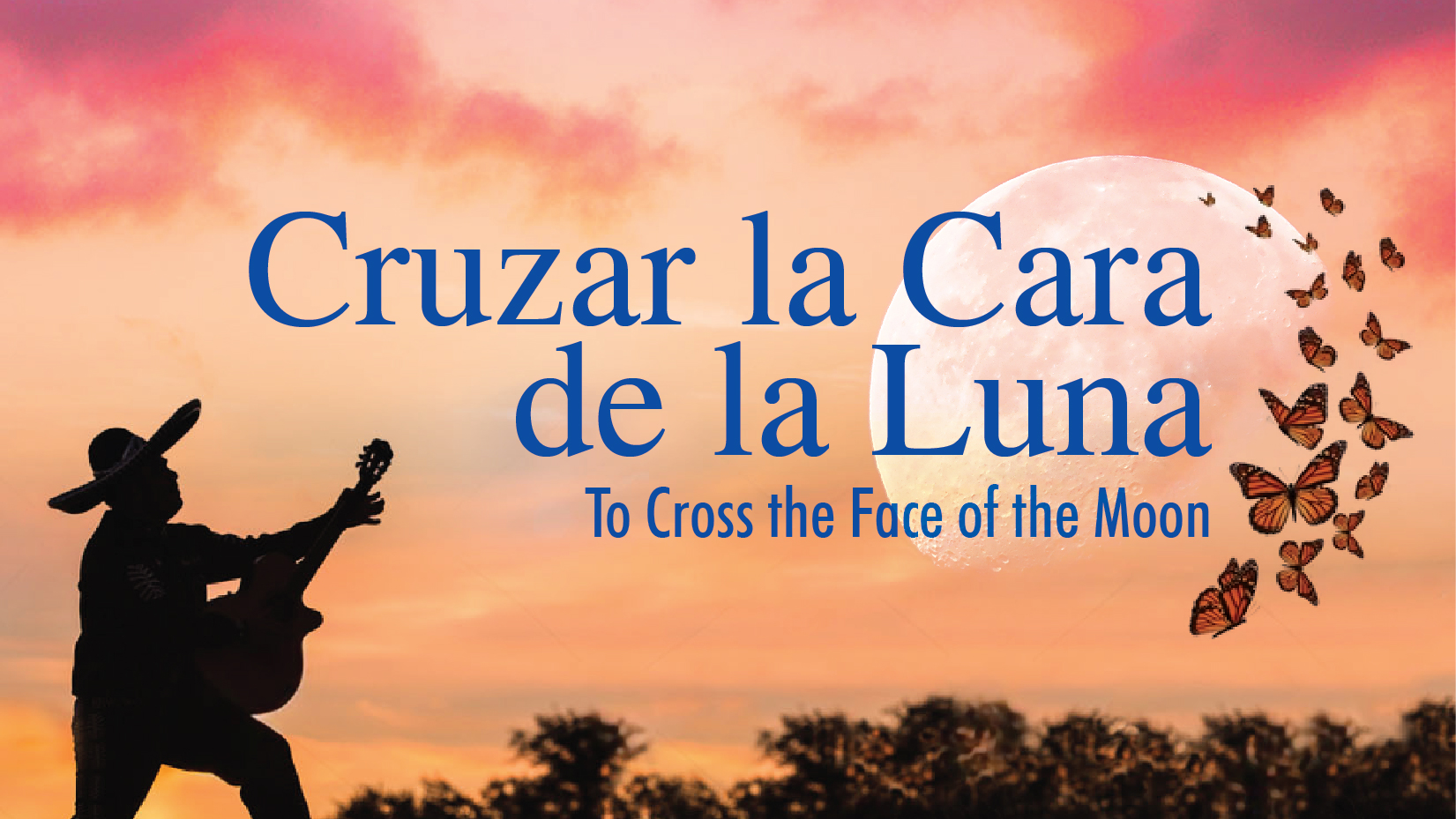
Cruzar la Cara de la Luna
(To Cross the Face of the Moon)
Music & Lyrics by José “Pepe” Martínez & Leonard Foglia
Book by Leonard Foglia
Commissioned by Houston Grand Opera
Sung in English & Spanish, with English & Spanish surtitles
Postponed
Run Time: Approximately 1 hour and 25 minutes, no intermission.
Opera Idaho announces that the much anticipated production of Cruzar la Cara de la Luna will be postponed until a future season. Cruzar ticket holders are encouraged to exchange their tickets for any upcoming ticketed event this season or in the upcoming 24-25 season, or convert their purchase to a tax deductible donation to Opera Idaho. Details, information, and ticket arrangements are available by calling the office at 208.345.3531, ext. 2.
Opera Idaho plans to mount performances in Boise and at least two other cities in Idaho. The artistic team has already begun conversations about collaborative performances and will be announcing updates about this production and their upcoming 2024-2025 season later this spring.
Opera fans and performing arts lovers can catch upcoming stellar performances for the rest of Opera Idaho’s 51st season including: Critical Mass Vocal Artist concert, “The Underground Railroad,” on May 4; the Children’s Opera Chorus presentation of their final spring concert on May 11; Operatini at the Sapphire Room on April 11; and a mini-opera at Opera Idaho’s spring fundraising event, In Good Taste, on May 21.
About
In 2010 the famous Mariachi composer José “Pepe” Martínes teamed up with director/librettist Leonard Foglia to create the first mariachi opera for Houston Grand Opera. spanning three generations and multiple timelines in Mexico and Houston, the opera is about one family’s journey across borders to find one another and make home together.
Synopsis
Where is home?
Is it where we are born?
Or where we live most of our lives?
Is it with the family we leave behind or with the new ones we create?
To Cross the Face of the Moon / Cruzar la Cara de la Luna follows three generations of a single family, divided by countries and cultures. As a Mexican/American man deals with the approaching death of his father, he is forced to face these questions about his own place in the world – straddling two cultures – as well as that of his immigrant father and his American daughter. As long-buried secrets are revealed, he finds himself dramatically re-evaluating his own understanding of what makes a family. Like the Monarch butterflies that migrate every year to the birthplace of his father, the members of the Velasquez family must travel both physically and spiritually between Michoacán and Texas and look deep into their hearts before they learn where they truly belong.
¿Cómo clasificaría a su casa?
¿Es donde hemos nacido?
¿O en el que vivimos la mayor parte de nuestras vidas?
¿Es con la familia que dejamos atrás, o con los nuevos que creamos?
La historia de Cruzar la Cara de la Luna sigue a tres generaciones de una misma familia, dividida por países y culturas. En Cruzar la Cara de la Luna un hombre mexicano-americano se preocupa por la muerte de su padre. Está obligado a enfrentarse a estas preguntas sobre su propio lugar en el mundo – un hombre viviendo entre dos culturas. Mexicano como su padre, un inmigrante de Mexico y Americano como su hija que ha nacido en los Estados Unidos. Cuando secretos enterrados se empiezan a revelar, el hombre se encuentra revaluando su propia comprensión de lo que hace una familia. Al igual que las mariposas monarca que migran cada año a la ciudad natal de su padre, los miembros de la familia Velásquez deben viajar tanto física como espiritualmente entre Michoacán y Texas y mirar profundamente en sus corazones antes de aprender donde realmente pertenecen.
— Leonard Foglia



























